
By Ferry from Leros to Kos
From Leros to Kos
Από
την
Λέρο
προς
Κω
I had been on Leros for four days,
taking in the recent history.
Now I would continue on to Kos by ferry.
We would stop first at the main town on Kalymnos,
an island just to the south that almost joins Leros.
All these islands are the peaks of mostly-submerged
mountains.
The number of Aegean islands depends on the water level
in the Mediterranean.
From Kalymnos we would continue to Kos,
just across a short strait from a peninsula of Turkey.
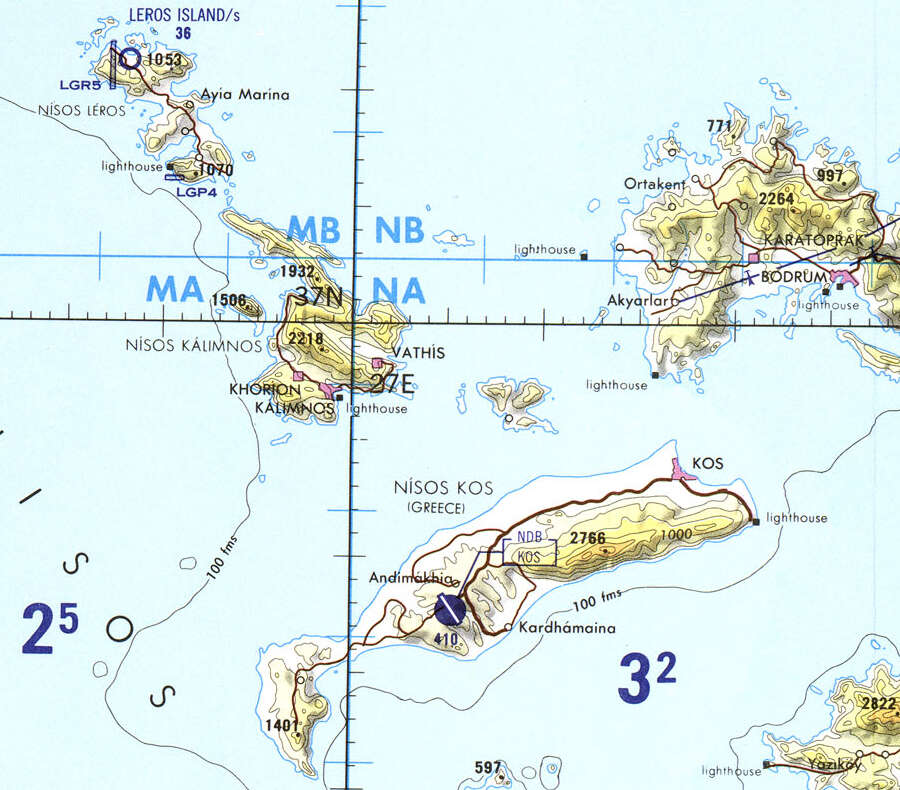
Portion of Tactical Pilotage Chart G-3B from the Perry-Castañeda Library Map Collection at the University of Texas at Austin.
I packed up, and my innkeeper summoned a taxi to take me to the port. It was well worth the €10 fee to avoid the 2.8 kilometer walk.
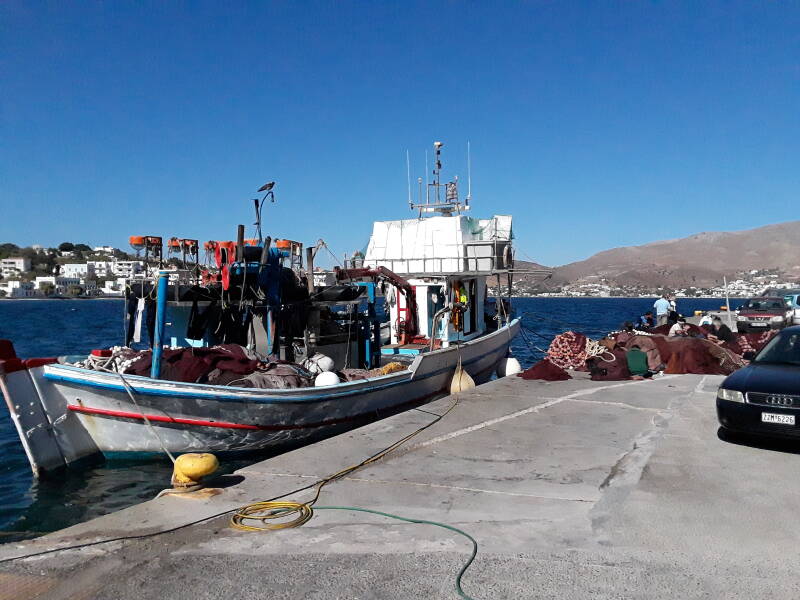
First I went to the ticket booth at the pier. It only opens about an hour before a ferry is scheduled to arrive. The ticket to Kos was €19.10.
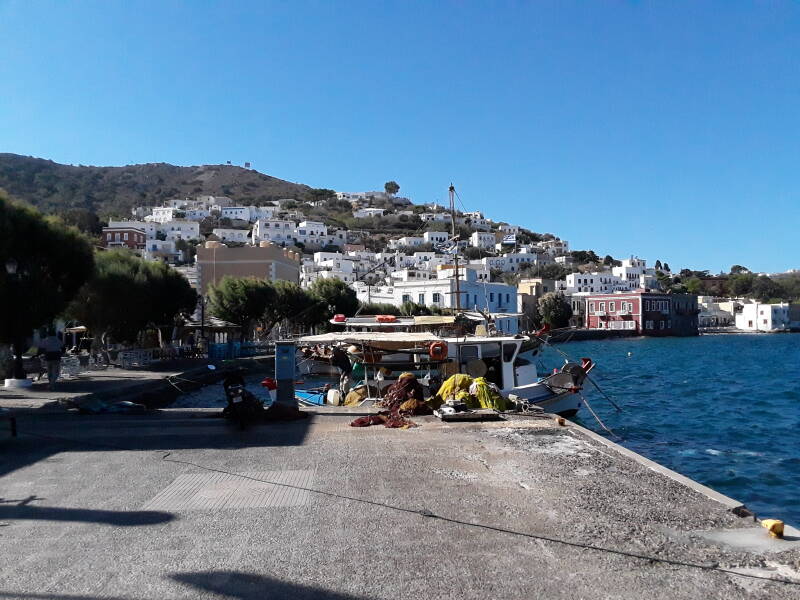
Then it was back to the cafe where I had gone every morning for a last koulouri or sesame bread ring and a double Greek coffee or two.
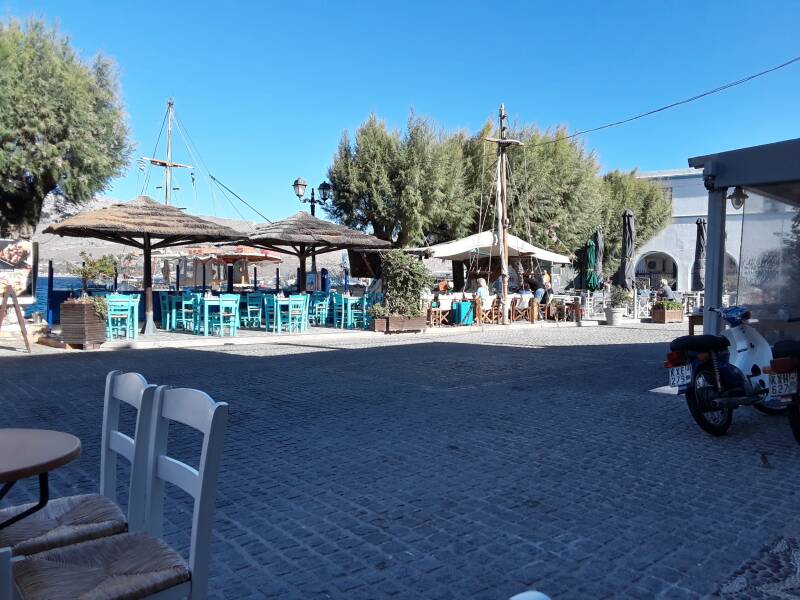
By Ferry via Kalymnos
The Dodekanisos Seaways ferry arrived right on time.
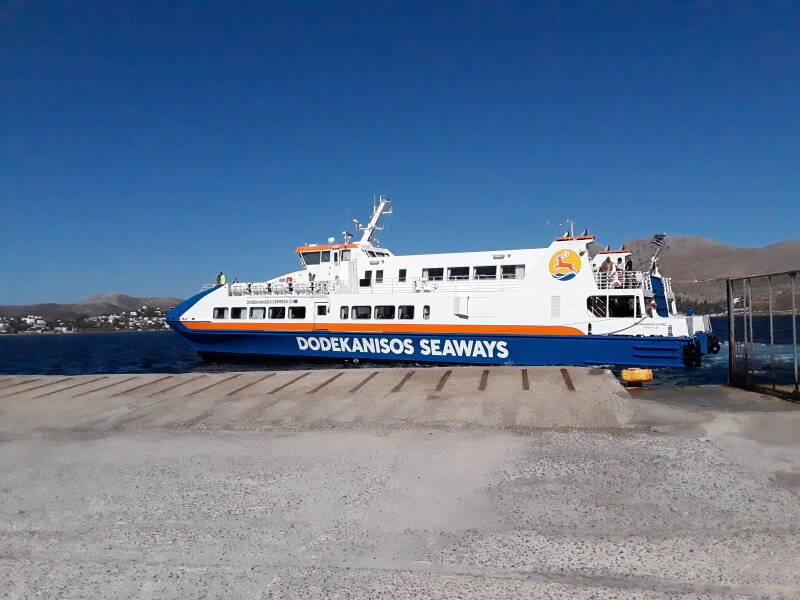
The Dodekanisos Express and its sister the Dodekanisos Pride are 40-meter Sea Lord type ferries built in Norway. They're powered by fully steerable water jets, letting them run at 32 knots and making them highly maneuverable.
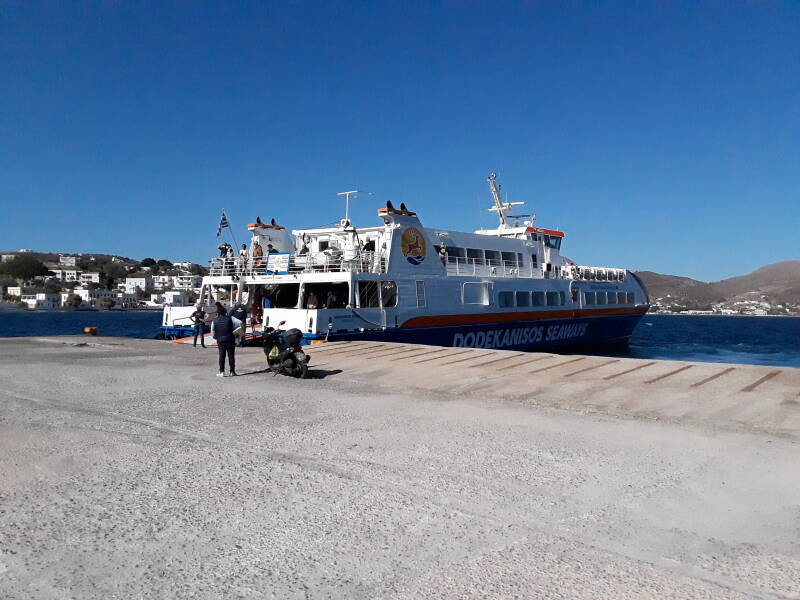
After a short port call we were on our way out of the Alinda bay.
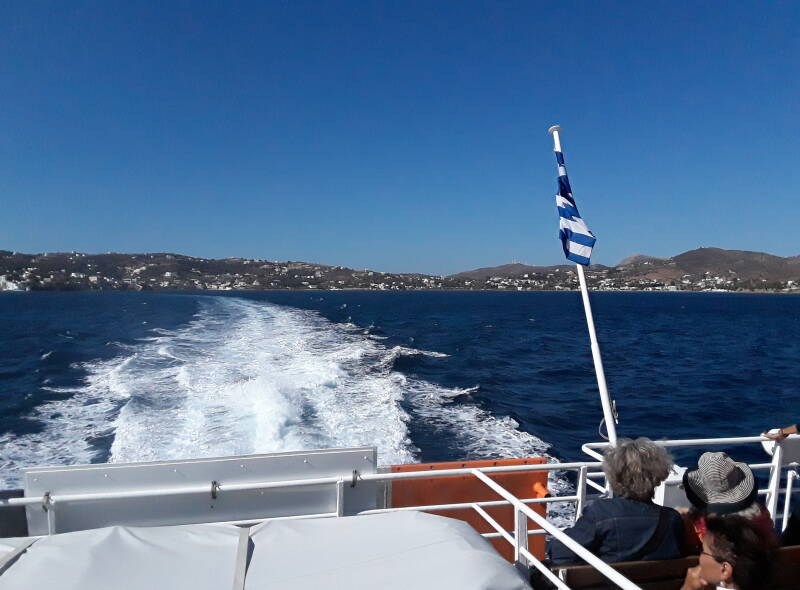
Within five minutes we were well past the peak with the Pandeli castle.
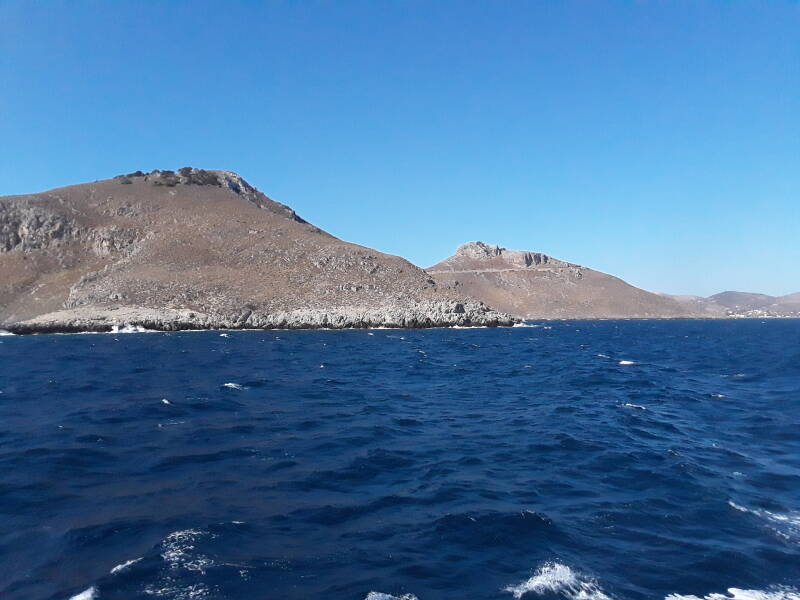
Ten minutes after that we were looking back at all of Leros.
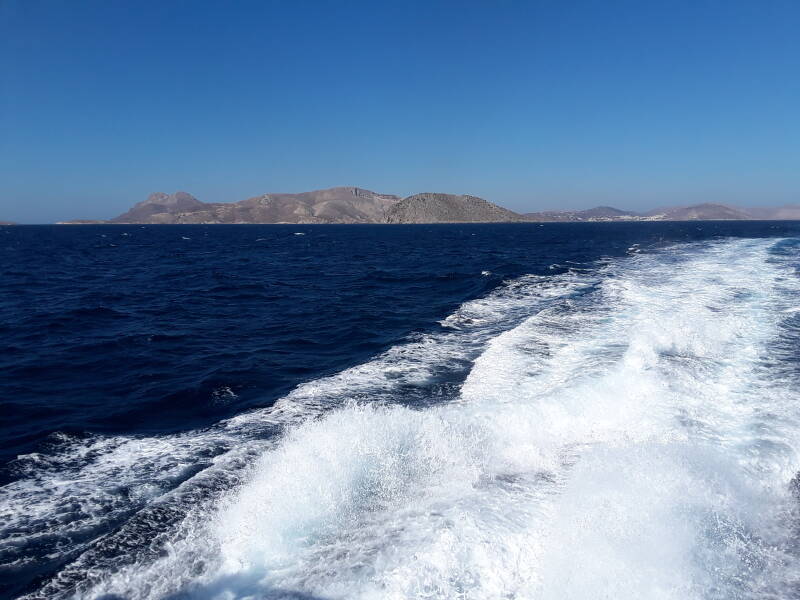
Kalymnos
We were soon traveling south along the steep east coast of Kalymnos.
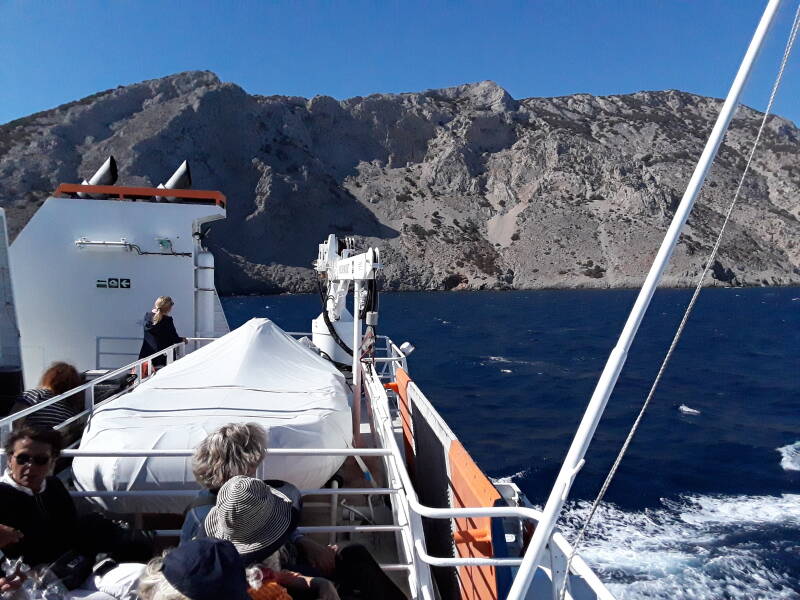
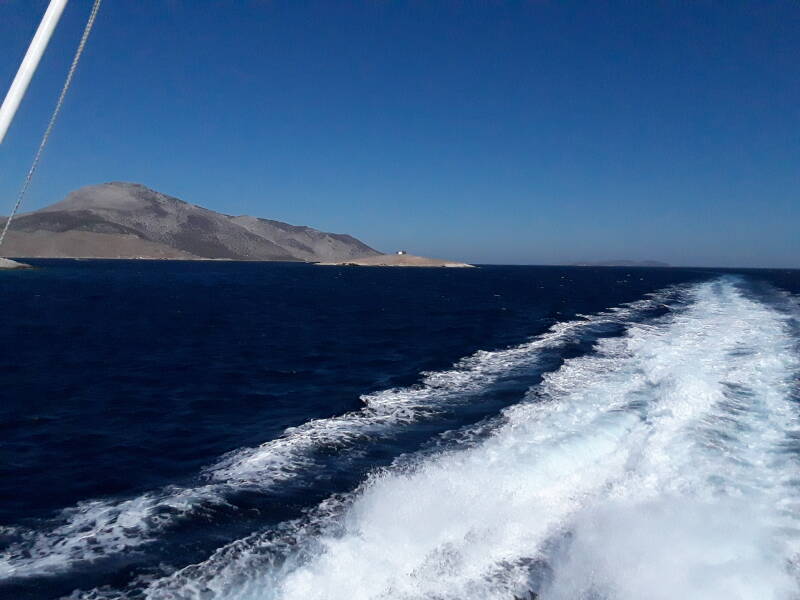
The ferries call at the main town on Kalymnos. After Rhodes and Kos, Kalymnos is the third most populous Dodecanese island. 16,000 people live here, twice as many as on Leros.
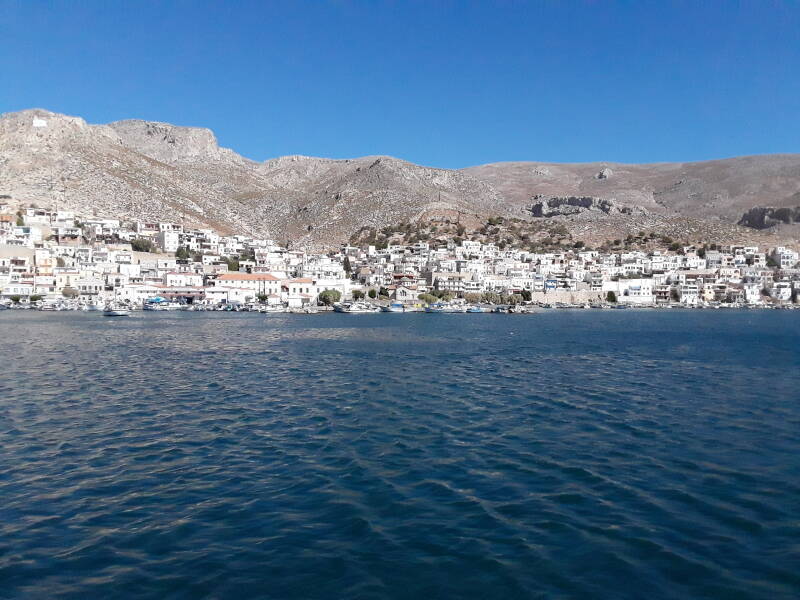
Even more people lived here in the past, the population was around 24,000 in 1925. Many people emigrated to Australia and the U.S.
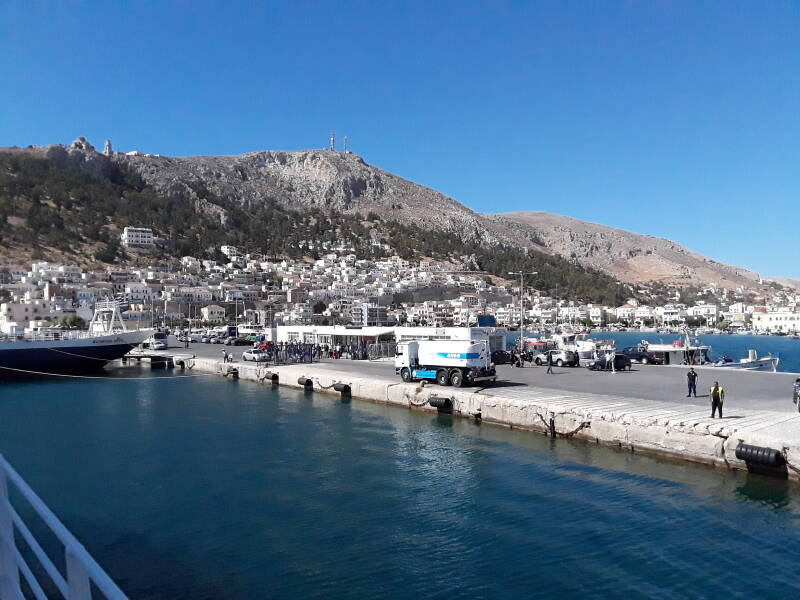
In the U.S., many of the Kalymnian emigrants joined the bridge-painting industry, and that became a family tradition for many of them. The sportscaster Bob Costas didn't follow that tradition.
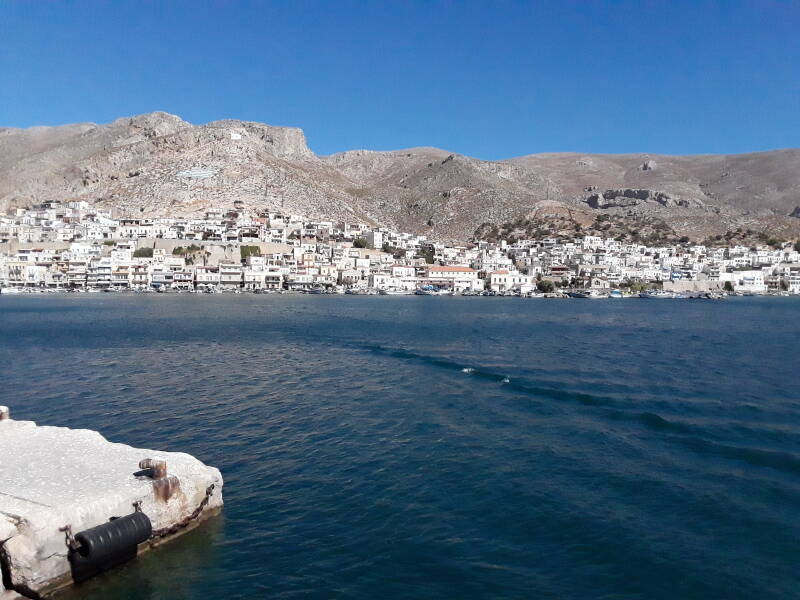
ΔΕΗ or the Public Electricity Company is one of the largest electricity suppliers in Greece. It generates electricity for Kalymnos, and then connects into an underground and underwater HVDC line leading to Leros and on to Leipsos.
ΟΤΕ or the Hellenic Telecommunications Organization provides fixed and mobile telephony, broadband Internet, and pay TV data streams over fiber and microwave links. It also connects underground and underwater from Kalymnos north to other Dodecanese islands.
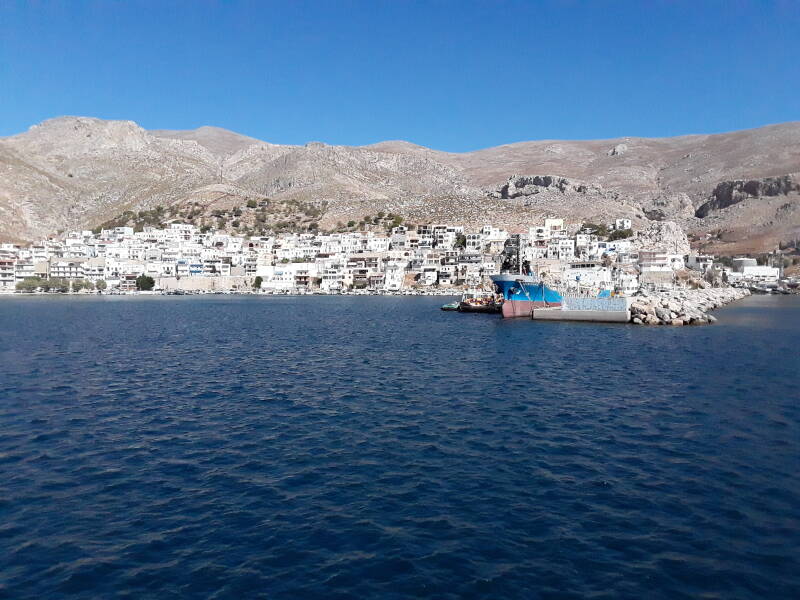
On to Kos
We were soon at the busy harbor at the main town on Kos.
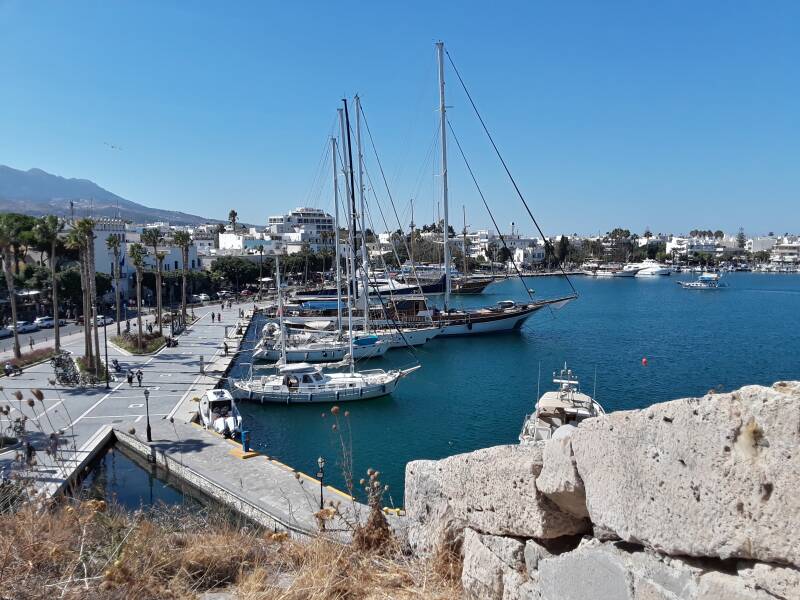
Bodrum, Turkey, is just across a narrow strait. You can see it in the distance from the Crusader era castle guarding the Kos harbor entrance.
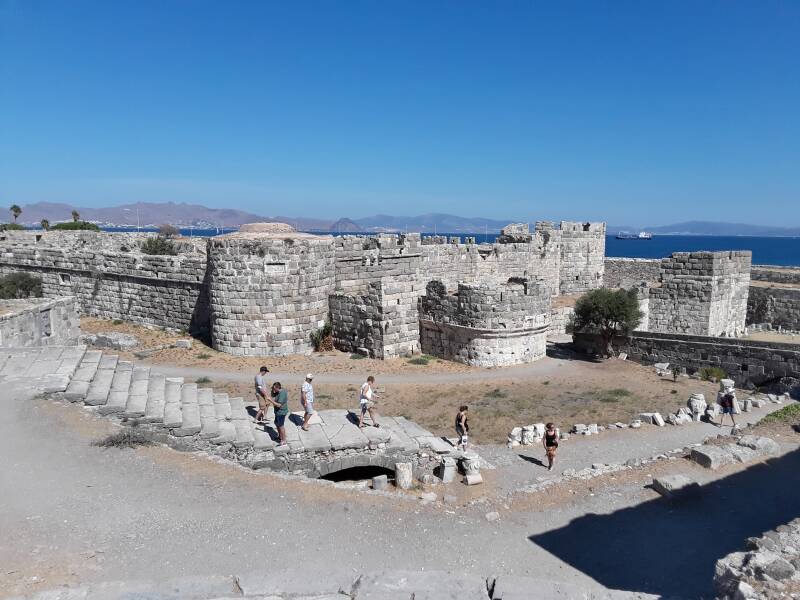
I had a room reserved at the Paradise Hotel, a short distance from the busy waterfront. It's just two blocks in from the waterline, but the setting is much quieter than the waterfront with its line of bars.
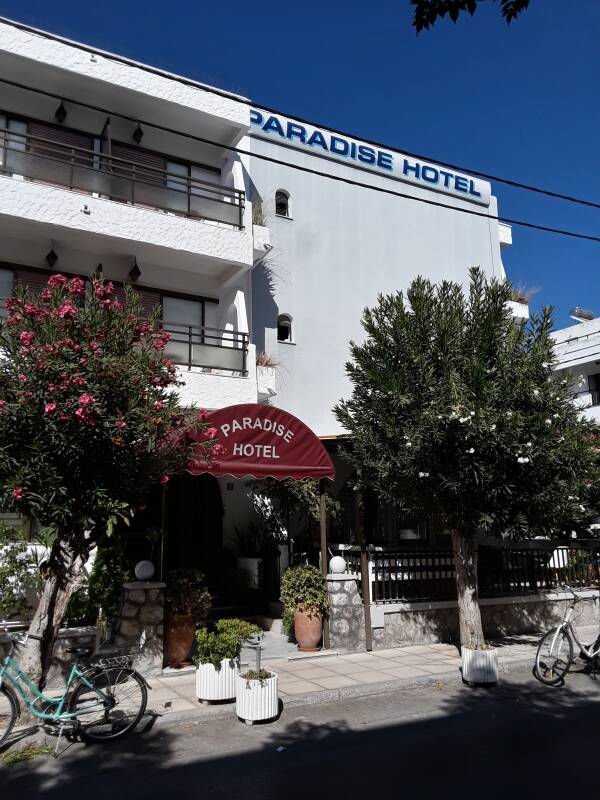
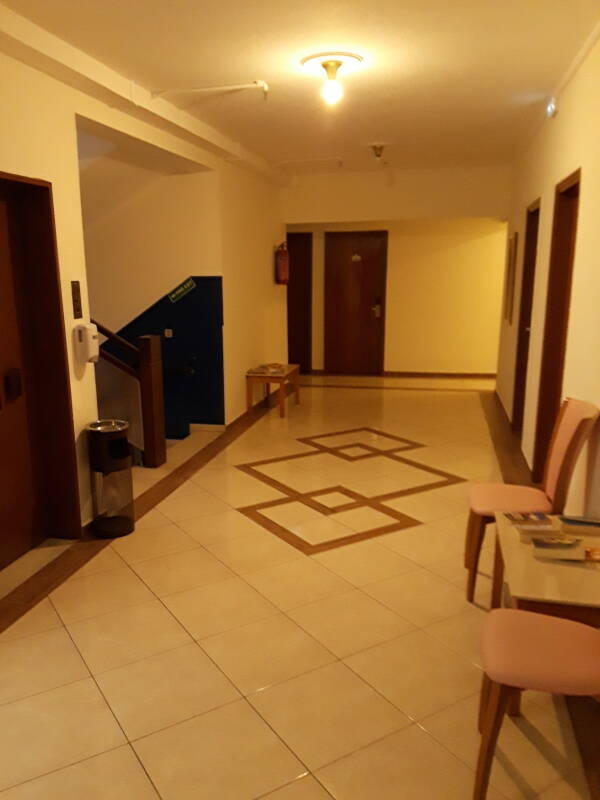
It was a nice place. A vaguely Intourist esthetic in the hallways, with a stack of Finnish detective novels on a table across from the elevator. It was quiet, I only saw another guest once or twice. But of course I didn't spend much time there other than sleeping overnight. And what a nice room, with my own balcony:
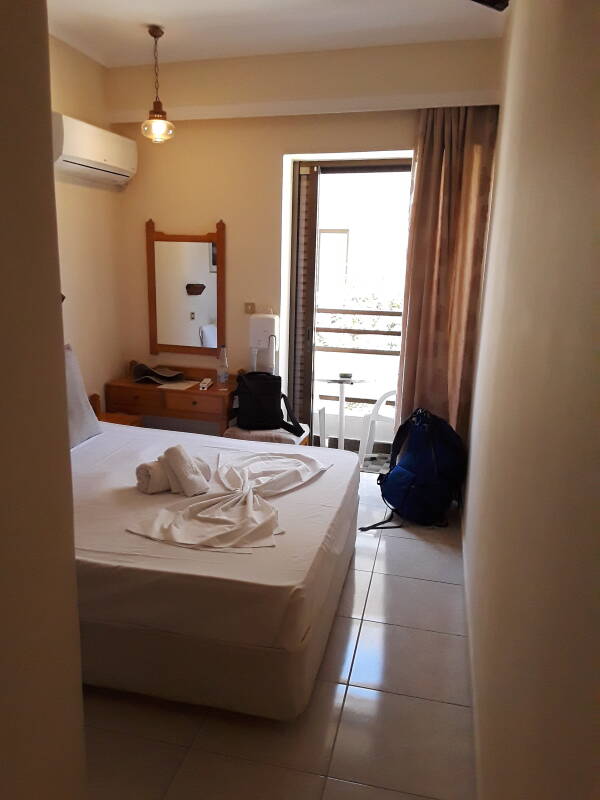
After four nights on Patmos and three on Leros, Kos was culture shock. Busy cafes and bars with Slavic wait staff and English and German patrons who have come to Kos for sunburns and hangovers. Kos is just a four-hour flight from London. Five or six "pirate ship" cruises leave the harbor late every morning, and return within a few minutes of each other around 17:00.
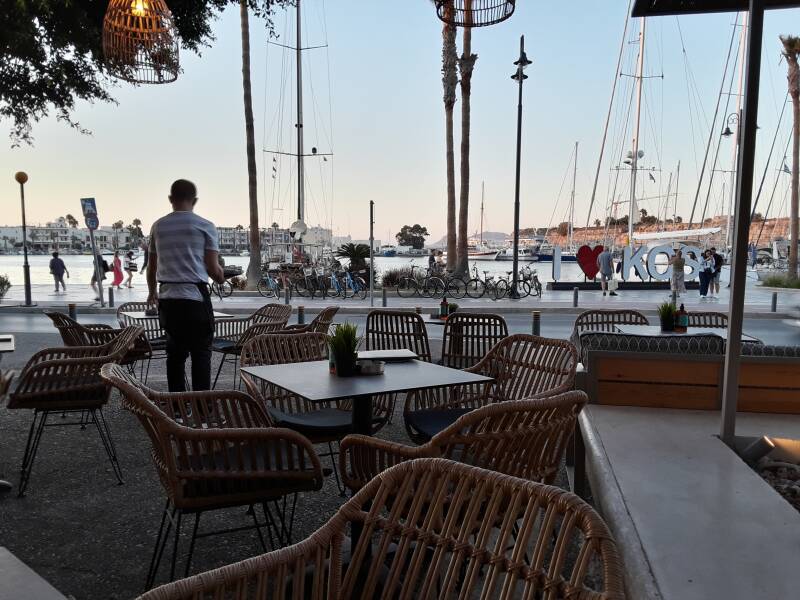
I was here for the ancient sights, especially the Asclepeion, where Hippocrates taught and practiced medicine.